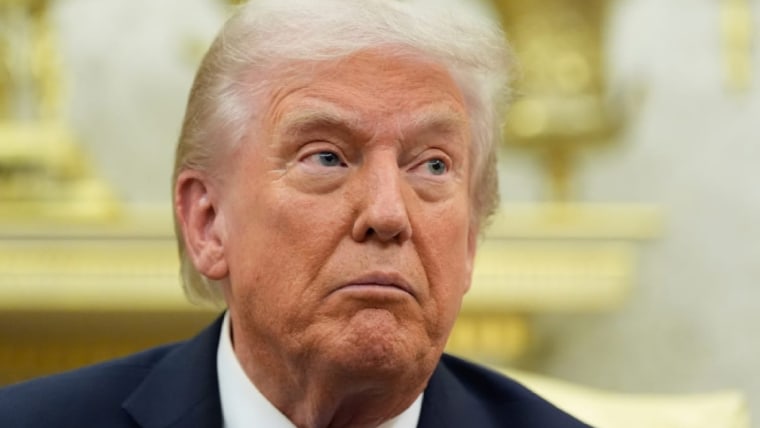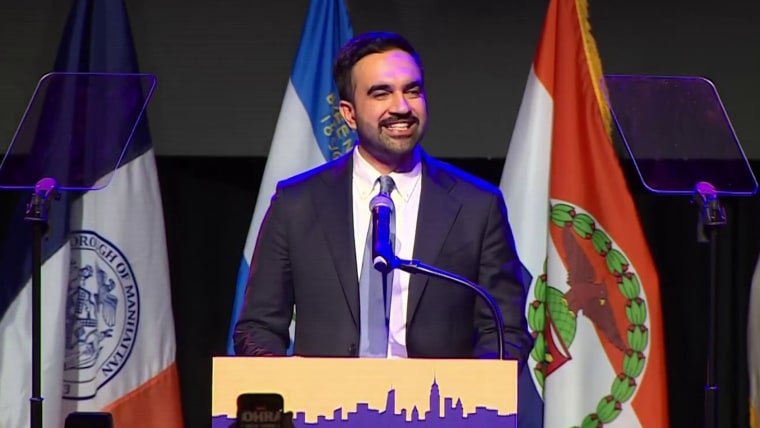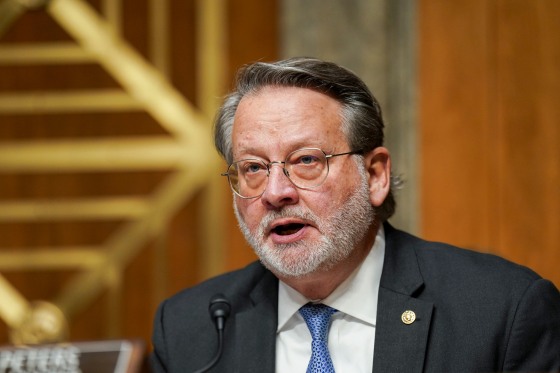A day after Democrats swept a series of off-year elections on Tuesday, Democratic senators returned to the Capitol with a complicated choice: whether to use the election as renewed leverage and hold firm on the shutdown, or take a bipartisan deal that would reopen government but do little to actually address skyrocketing Obamacare premiums.
For now, different groups of Democrats seem to have different approaches.
For the moderate wing of the Senate’s Democratic Caucus, which has been working toward a deal with Republicans to end the shutdown, Tuesday’s decisive election results didn’t seem to do much.

Sen. Gary Peters, D-Mich., told MSNBC on Wednesday that conversations about the shutdown will “continue until we resolve this.”
“It’s not going to stop,” Peters said.
Another member of that bipartisan group, Sen. Jeanne Shaheen, D-N.H., said Wednesday that the talks remain “positive.”
And Sen. Catherine Cortez Masto, D-Nev., told MSNBC that “as long as we’re talking and negotiating, still trying to move forward, that’s going to be helpful.”
But for the Democrats who were already frustrated with the deal that was emerging, the election results only stiffened their resolve. The voters, they said, had sent a message: Hold firm.
Sen. Chris Murphy, D-Conn., told reporters on Wednesday that “It would be very strange if, on the heels of the American people having rewarded Democrats for standing up and fighting, we surrendered without getting anything for the people we were fighting for.”
Sen. Richard Blumenthal, D-Conn., echoed Murphy, saying the election results “should embolden us to know the American people are on our side,” adding that he hopes his colleagues read the results that same way.
Other Democrats cited Trump’s growing unease with the shutdown as a reason to hold firm.
“Donald Trump finally realizes that he’s got a problem on his hands,” Sen. Chris Van Hollen, D-Md., told reporters Wednesday. “He clearly saw it as a liability in the elections last night, so he should come to the table and help fix it.”
In a post on social media Tuesday night, as the votes were being counted, Trump listed the shutdown as one of “two reasons that Republicans lost elections.” (The other reason was that “TRUMP WASN’T ON THE BALLOT.”)

The next morning, the president told Senate Republicans at a White House breakfast meeting that the shutdown had been “worse for us than for them,” according to several senators in attendance, pressuring Republicans to nix the 60-vote filibuster. Ditching the filibuster would allow GOP lawmakers to open the government unilaterally without needing Democratic support.
Even before the election, public polling had routinely shown Democrats to be in the driver seat politically on the shutdown, with Americans routinely blaming Republicans more than Democrats for the standoff.
But with the pain of the shutdown mounting, many Democrats are still looking for a speedy resolution, even if it means Democrats come away with less than they wanted on their demands to address rising Obamacare premiums.
Just 24 hours earlier, a potential deal appeared to be in view, with Senate sources telling MSNBC that negotiators were eyeing a plan where lawmakers would advance a so-called “mini-bus” of three appropriations bills alongside a short-term funding bill to reopen the rest of government.
But a vote on the central Democratic demand of the shutdown — extending the expiring Obamacare subsidies — would come separately, with no guarantee of passage.
The contours of that fragile agreement were leaked before polls closed on Tuesday, when Democrats came away with convincing wins — including double-digit victories in both the Virginia and New Jersey governor races. And Democrats seemed to hope those wins would change the dynamics for Republicans.
Sen. Tim Kaine, D-Va., told reporters he was “hoping that the results last night incentivize” Trump’s “engagement in a way he hadn’t thought necessary until now.”
“What we have missed is presidential engagement,” Kaine said. “He’s engaged now.”
Despite that optimism, getting Trump to the table remains no sure bet.
On Wednesday, Senate Minority Leader Chuck Schumer, D-N.Y., and House Minority Leader Hakeem Jeffries, D-N.Y., sent a letter to Trump again demanding a meeting.
And just hours later, Senate Majority Leader John Thune, R-S.D., said Trump had told him he was willing to sit down with the two Democrats — but only after Democrats had voted to reopen the government.

